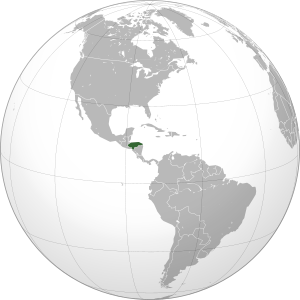A new fish feed plant in Honduras will produce home-produced feed for the first time.
The plant, a partnership between Aquafinca and Gisis S.A. of Ecuador, will produce 100 thousand tons of feed for fish and shrimp.
Until now, fish food had to be imported from Ecuador.
Some of the biggest players in the aquaculture industry have committed to invest £37 million in Scottish fish farming over the next two years.
The
owners of Scottish Sea Farms, SalMar and Leroy, plan to spend £12m in freshwater operations and a further £25m
in new farming sites. These investments will
bring much needed jobs to rural communities in Dumfries, Highlands and
Orkney.
Leif
Inge Nordhammer Chairman of Scottish Sea Farms said, “The owners and
Board of Scottish Sea Farms are committed to growing our production in a
sustainable way to satisfy the demands for Scottish Salmon in markets
around the world and to support the communities where we operate.”
New study reviews historical records to provide insight into current UK marine populations.
Exploitation of marine fisheries often begins decades or even centuries before regular monitoring of fish stocks is undertaken, making it difficult to accurately assess the current health of fish populations in the context of their past abundance. In an article appearing in Significance, the magazine of the Royal Statistical Society and the American Statistical Association, Dr Ruth H Thurstan uses historical information to uncover a picture of the UK’s coastal environments prior to the intensification of fishing.
Dr Thurstan, previously at the University of York, now based at the University of Queensland, Australia, collated historical records of interviews with fishermen that took place during the 1860s and 1880s to determine what changes they were witnessing in the marine environment during this period. Using these long-term data sources, a better understanding can be provided of the extent of changes that have occurred in the marine environment.
The resulting research quantifies changes in UK fisheries productivity up to 70 years prior to the commencement of fisheries statistics and extends knowledge of changes to UK fisheries back to 1810. The research demonstrates that substantial changes occurred in coastal marine ecosystems long before the start of fisheries statistics collection in 1886, by which time intensive fishing was widespread. During the 1880s, many prominent trawl owners – many of whom had been fishing for several decades – began to call for closures of inshore fishing grounds to protect fish stocks. The testimonials not only provide us with vital information on the earliest impacts of intensive fishing activities, but also show that concerns over declining fish stocks is not new.
“Our findings help to improve our understanding of past change and the long-term effects of our activities upon the marine environment,” says Dr Thurstan. “Without this knowledge, we risk underestimating the changes that have occurred and reduce our ability to successfully manage and conserve marine ecosystems into the future.”
Exploitation of marine fisheries often begins decades or even centuries before regular monitoring of fish stocks is undertaken, making it difficult to accurately assess the current health of fish populations in the context of their past abundance. In an article appearing in Significance, the magazine of the Royal Statistical Society and the American Statistical Association, Dr Ruth H Thurstan uses historical information to uncover a picture of the UK’s coastal environments prior to the intensification of fishing.
Dr Thurstan, previously at the University of York, now based at the University of Queensland, Australia, collated historical records of interviews with fishermen that took place during the 1860s and 1880s to determine what changes they were witnessing in the marine environment during this period. Using these long-term data sources, a better understanding can be provided of the extent of changes that have occurred in the marine environment.
The resulting research quantifies changes in UK fisheries productivity up to 70 years prior to the commencement of fisheries statistics and extends knowledge of changes to UK fisheries back to 1810. The research demonstrates that substantial changes occurred in coastal marine ecosystems long before the start of fisheries statistics collection in 1886, by which time intensive fishing was widespread. During the 1880s, many prominent trawl owners – many of whom had been fishing for several decades – began to call for closures of inshore fishing grounds to protect fish stocks. The testimonials not only provide us with vital information on the earliest impacts of intensive fishing activities, but also show that concerns over declining fish stocks is not new.
“Our findings help to improve our understanding of past change and the long-term effects of our activities upon the marine environment,” says Dr Thurstan. “Without this knowledge, we risk underestimating the changes that have occurred and reduce our ability to successfully manage and conserve marine ecosystems into the future.”
| English: Honduras (Photo credit: Wikipedia) |



No comments:
Post a Comment